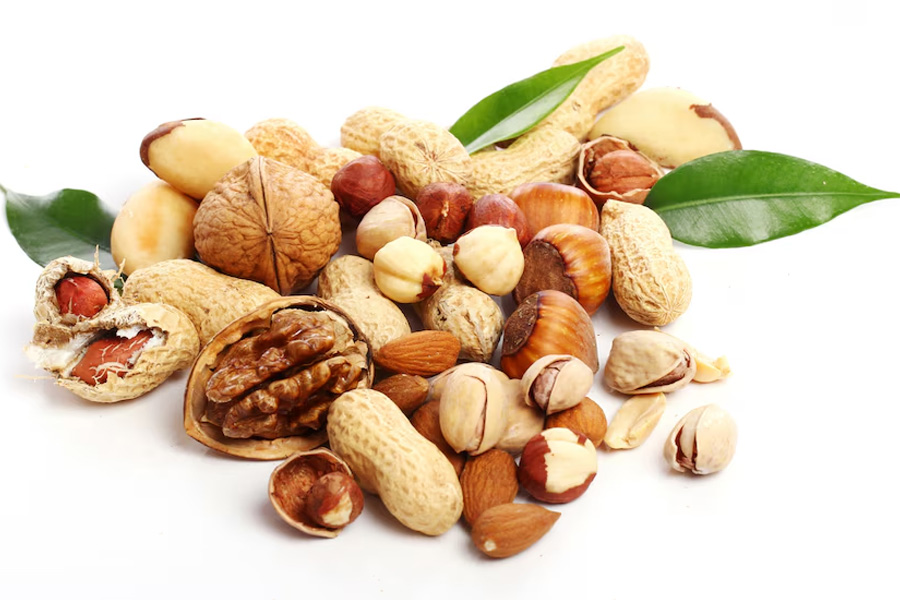Winter-Proof Your Immunity: These Vitamins Will Help You Keep Illness At Bay

1. Vitamin C

Vitamin C is one of the most well-known immune-boosting vitamins. This antioxidant is crucial for promoting the production of white blood cells, which are essential for fighting infections. Studies have shown that vitamin C can reduce the severity and duration of respiratory infections, making it especially important during the colder months. A study published in the American Journal of Clinical Nutrition found that regular intake of vitamin C significantly reduced the risk of developing common cold symptoms. Daily intake of around 500 mg can keep your immune system in top form.
Food Sources: Citrus fruits (oranges, lemons, grapefruit), bell peppers, strawberries, and broccoli.
2. Vitamin D

Often referred to as the “sunshine vitamin,” vitamin D is vital for immune health. Our bodies produce vitamin D when exposed to sunlight, but as winter sets in, reduced sunlight can lead to deficiencies. Low vitamin D levels have been linked to increased susceptibility to infections, particularly respiratory infections. A meta-analysis published in the British Medical Journal demonstrated that daily or weekly supplementation of vitamin D significantly reduces the risk of acute respiratory infections, especially in those with low levels to start with.
Food Sources: Fatty fish (salmon, mackerel), fortified dairy products, and egg yolks. However, a supplement might be necessary in winter months to maintain optimal levels.
Also read: Is Vitamin D the Key to Tackling Type 2 Diabetes? New Study Reveals Promising Insights
3. Vitamin A

Vitamin A plays a key role in maintaining the structure of the cells in the skin, respiratory tract, and gut – our body’s first line of defense. It also supports the production and function of white blood cells, essential in fighting off infections. Studies indicate that adequate vitamin A levels are associated with a lower risk of infectious diseases. Research published in The Journal of Nutrition concluded that vitamin A deficiency compromises immunity, making the body more vulnerable to infections.
Food Sources: Carrots, sweet potatoes, spinach, and other leafy greens, as well as dairy products and eggs.
4. Vitamin E
A powerful antioxidant, vitamin E helps the body fight off infection by supporting the function of immune cells. Vitamin E’s role as an antioxidant also means it helps protect cells from oxidative damage, which is essential in maintaining immune health. A study in The American Journal of Clinical Nutrition found that older adults who took vitamin E supplements experienced fewer respiratory infections, underscoring its immune-boosting potential.
Food Sources: Nuts (almonds, sunflower seeds), spinach, and avocados.
5. Vitamin B6

Vitamin B6 is essential for biochemical reactions in the immune system. It aids in the production of antibodies and supports the function of red blood cells, which carry oxygen to cells, ensuring they operate optimally. According to research from The European Journal of Clinical Nutrition, vitamin B6 deficiency can impair the immune response. Supplementation has been shown to enhance antibody production, especially important during cold and flu season.
Food Sources: Poultry (chicken, turkey), chickpeas, bananas, and leafy green vegetables.
Also read: Vitamin B6 Supplements Could Help Reduce Anxiety And Depression, Says Study
Practical Tips for Boosting Immunity Before Winter
Balanced Diet: Focus on incorporating a range of fruits, vegetables, lean proteins, and whole grains in your diet to get a broad spectrum of vitamins and minerals.
Supplements: If dietary sources are insufficient, consider supplements, especially for vitamins like D and C. Consult a healthcare professional to determine appropriate doses.
Healthy Lifestyle: Good sleep, regular exercise, and stress management are also essential for a well-functioning immune system.
Conclusion
Boosting your immunity with these essential vitamins before winter is a proactive way to prepare your body against seasonal illnesses. By including vitamin-rich foods in your diet, supplementing when necessary, and maintaining a healthy lifestyle, you can give your immune system the support it needs to keep you healthy and resilient through the colder months.
link




